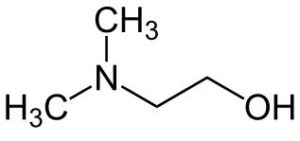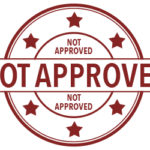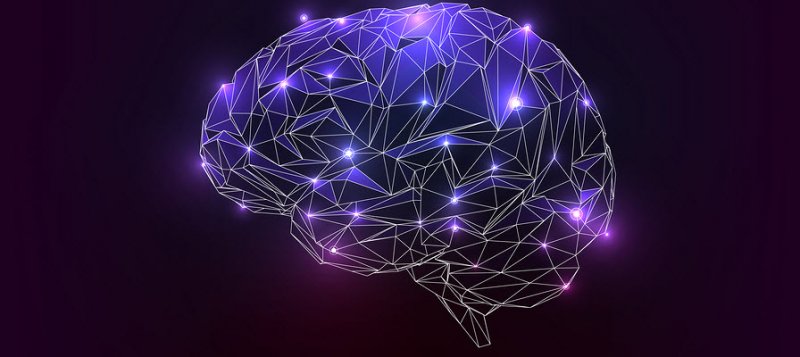Table of Contents
Key Takeaways
- DMAE is structurally similar to choline but not a direct precursor to acetylcholine (ACh), causing confusion about its role as a nootropic.
- It may provide neuroprotection by removing lipofuscin and free radicals from brain cells.
- DMAE boosts choline levels in the brain and stimulates cholinergic receptors, potentially leading to improved mood, energy, and sleep patterns in some people.
- Studies have explored its potential benefits in treating cognitive disorders and ADHD, while it is also used in cosmetics for skin-firming properties.
- Recommended dosage is 100-200 mg per day, with short-term or intermittent use is considered safe, but should be avoided during pregnancy or by those with epilepsy or bipolar disorder.
- If you decide to try DMAE I recommend: Click for Cosmic Nootropic – DMAE
DMAE (Dimethylaminoethanol, Deanol, Deaner) has two methyl groups and is structurally similar to choline, which is a direct precursor to the synthesis of acetylcholine (ACh).
ACh is a critical neurotransmitter that influences everything from memory to muscle control. And it is the relationship ACh has with DMAE that generates most of the hype around DMAE as a nootropic.
But it turns out that DMAE is NOT a precursor to acetylcholine as reported on many nootropic and brain optimization sites. However, many neurohackers report that supplementing with DMAE has worked wonders for their brain.
So here I’ll try to clear up some of the confusion and misinformation surrounding DMAE as a nootropic supplement. And if adding DMAE to your stack makes sense.
DMAE helps:
- Neuroprotection. DMAE helps eliminate lipofuscin and free radicals from brain cells.
- Neurotransmitters. DMAE prevents choline uptake by cells forcing more free choline to be available in your system. And DMAE stimulates cholinergic receptors that may promote the use of acetylcholine (ACh) in your brain.
- Mood. DMAE supplementation may improve mood and energy while influencing sleep patterns.
Overview
DMAE (Dimethylaminoethanol, Deanol, Deaner) is an amine naturally produced in small amounts in your brain. High levels of DMAE are also found in seafood like anchovies and sardines.

Researchers have speculated that DMAE may increase acetylcholine (ACh) levels in the brain by inhibiting choline metabolism in peripheral tissues.
By preventing the use of choline by other tissues (including acetylcholine synthesis), DMAE increases choline levels in the bloodstream.[i]
Once DMAE crosses the blood-brain barrier, it increases choline levels in the brain. So with higher choline levels present, you would expect elevated levels of acetylcholine (ACh).
But research has shown this is not always what happens when DMAE gets to your brain. In one study DMAE was rapidly taken into the brain. But when it reached synapses – nothing happened. Choline levels rose but did not convert into acetylcholine.[ii]
What’s going on here? First, we must look at how acetylcholine (ACh) is made. ACh is synthesized in a single step reaction catalyzed by the enzyme choline acetyltransferase (ChAT).[iii] The rate-limiting steps in ACh synthesis are the availability of choline and Acetyl Coenzyme A (Acetyl-CoA).
The only other source of acetylcholine (ACh) is synthetization from phosphatidylcholine (PC) via phosphatidylethanolamine N-methyltransferase (PEMT).[iv] And this ACh synthesis only happens in cholinergic receptors.
So it would appear that DMAE cannot be converted to either choline or ACh. The only way DMAE can increase choline is by inhibiting choline metabolism.
And the reason why choline levels rise in the brain when supplementing with DMAE is because the choline does not synthesize into acetylcholine (ACh).[v]
So why do some neurohackers experience a benefit in increased focus, clearer cognition, and even an antidepressant effect with DMAE?
It could be that DMAE stimulates cholinergic receptors into taking action.[vi] And with extra choline floating around because of DMAE, these neuroreceptors may decide to produce some extra ACh.[vii]
DMAE may be useful to those dealing with a choline deficiency in the brain. And studies show that DMAE effectiveness in the brain depends on the health of the cholinergic system in your brain.[viii]
But as neurohackers we have more efficient options available for boosting acetylcholine in the brain. Centrophenoxine which is a combination of DMAE and cCPA (parachlorphenoxyacetic acid) seems to boost acetylcholine in the brain much more efficiently than DMAE.
How does DMAE Work in the Brain?
DMAE boosts brain function and health in several ways. But two in particular stand out.
- DMAE is a neuroprotectant. Lipofuscin is a cellular waste product that accumulates in nerve cells in the brain as we age. It’s the same waste product that causes brown spots on skin. Lipofuscin hides in cells throughout your body including your brain, eyes, liver, kidneys, heart, adrenals and nerve cells (neurons).
Neurohackers often report that supplementing with DMAE produces enhanced vision. This vision effect may be DMAE’s ability to help remove waste like lipofuscin from cells that affect vision.
This lipofuscin removal mechanism of action by DMAE has been shown in animal studies. Researchers used Centrophenoxine injections on 17-month old female mice. The animals were injected daily for 3 months.
The researchers studied changes in pigment layers of the retina of both eyes in the mice. And found there was significant reduction of lipofuscin pigment in the treated animals.[ix]
Centrophenoxine breaks down into DMAE once in your body. And it is the DMAE in this nootropic that provides the lipofuscin scavenger affects.
- DMAE enhances attention and mood. DMAE has been reported by some neurohackers to improve vigilance, attention, mood and energy while alleviating depression. A study by German researchers may explain where this feeling of well-being comes from when supplementing with DMAE.
This double-blind, placebo-controlled trial used 80 human subjects evenly split between male and female. The study analyzed their brain’s electrical reaction during the presentation of five 7-minute video clips followed by a 3-minute pause for each.
This procedure was repeated after 6 and 12 weeks of daily intake of DMAE or a placebo. The subjects taking DMAE for 3 months developed significantly less theta and alpha brain waves.
Decreases in theta and alpha brain waves have been associated with increased vigilance and attention. The subjects using DMAE were also more active and felt better.
The researchers concluded that DMAE can induce a state of better feeling of well-being.[x]
How things go bad
As we get older, our brain chemistry and energy metabolism changes.
↓ Concentration, working memory and executive function decline
↓ Cholinergic receptors degenerate
↓ DMAE levels decline
↑ Lipofuscin and free radicals build up in brain cells
All of these age-related changes could be influenced by declining DMAE levels. And are contributing factors to neurodegenerative diseases and depression.
DMAE levels are an inevitable consequence of aging. And may contribute to the onset of degenerative disease.
DMAE benefits
DMAE increases choline levels in your brain. This increase in choline and DMAE’s ability to stimulate cholinergic receptors into action may lead to an increase in acetylcholine (ACh) levels.
But DMAE does not directly elevate acetylcholine levels in the brain. DMAE is NOT a precursor to acetylcholine.[xi]
Increased ACh levels affect learning and memory. ACh helps the encoding of memories and your ability to concentrate. As neurohackers, we absolutely want to increase acetylcholine levels. Especially if our brain is low on ACh.
But DMAE is not the best way to achieve the goal of elevated ACh levels.
Research into DMAE is ongoing and there may be some benefits to supplementing with DMAE not yet known by the neurohacking or research community.[xii]
DMAE has been used to treat a variety of conditions from cognitive disorders to attention deficit hyperactivity disorder (ADHD). DMAE is also used in skin care products to help reduce age spots, fine lines and wrinkles, improve skin appearance, and even reduce sagging skin.[xiii]
Free radicals can cause damage to DNA, upset cellular metabolism, and induce the creation of oxygen species that kill brain cells.[xiv] Some research has found that DMAE is a somewhat effective free radical scavenger.[xv]
DMAE has been found to diminish the extent of “cross-linking” of proteins that have been implicated in diseases like Alzheimer’s.[xvi] Researchers think this may be due to DMAE’s effectiveness as a free radical scavenger.[xvii]
DMAE is reported to induce lucid dreaming.[xviii]
How does DMAE feel?
Some neurohackers report that DMAE supplementation causes a noticeable boost in their ability to concentrate.
DMAE users often report:
- better memory (especially short-term memory)
- mentally alert
- improved focus
- mental clarity
- better sleep patterns
Dosing more DMAE than recommended has been reported to make you feel edgy and tense. And you may experience muscles spasms, particularly in your shoulders and neck.
DMAE Clinical Research
Early DMAE Research
A prescription form of DMAE called Deaner or Deanol was in clinical use as far back as the 1960’s and 70’s. Deanol was used for the treatment of learning and behavioral problems associated with shortened attention span.
Two clinical trials conducted over 40 years ago proving the efficacy of using DMAE for treating what’s now known as ADHD are below.
But in 1983, the FDA in all their wisdom insisted on additional studies to prove the effectiveness of DMAE. And because clinical trials would have been costlier than product sales could support, the company making Deanol and Deaner took them off the market.
DMAE is now available as a nootropic supplement. One that your doctor or psychiatrist is unlikely to prescribe to you for treating your ADHD.
DMAE to Treat ADHD
One double-blind, placebo-controlled study compared the effects of DMAE supplementation with methylphenidate (Ritalin) for treating ADHD. 74 children diagnosed with learning problems and hyperactivity were referred to this study.
The children received 40 mg of Ritalin, 500 mg of DMAE or a placebo daily for 3 months. Behavior, reaction times and other psychometric tests were done before and after treatment.
Both ‘drugs’ proved to be effective according to several tests. The researchers concluded that DMAE supplementation significantly improved performance in children with learning and behavior disorders.[xix]
Another study conducted by Dr. Carl Pfeiffer of the Brain-Bio center in Princeton, New Jersey with 25 girls and 83 boys found similar results in using DMAE for treating ADHD.
In this study, Dr. Pfeiffer DMAE enhanced the behavior in 2/3 of the boys and 3/4 of the girls. Attention span was better, irritability and hyperactivity were decreased, scholastic ability improved and in some cases even IQ got a boost.[xx]
So if you’re ADHD, and using Ritalin or Adderall and looking for a natural alternative, you may want to try DMAE.
DMAE use in Cosmetics
Most of the research on DMAE in the 1950’s and 60’s centered around using this compound for cognitive function and human brain health.
The most recent research on DMAE is primarily for using the compound in skin cosmetic formulas. But too much DMAE may cause skin irritation.
DMAE has been shown to increase skin firmness even in young skin. One study with 30 healthy adults aged 36 – 49 applied DMAE gel or a placebo. The results of the study showed that DMAE-treated skin was much firmer.[xxi]
Another randomized clinical study used 3% DMAE facial gel applied daily for 16 weeks. The gel was able to reduce forehead lines, wrinkles around the eyes and improve lip shape and fullness. And the effects did not regress even 2-weeks after stopping application.
Another open-label extension of the same trial showed that long-term application of DMAE gel had a good safety profile.[xxii]
DMAE Supplements Dosage
Recommended dosage the dietary supplement DMAE is 100 – 200 mg per day.
DMAE nootropic supplements are usually sold as DMAE bitartrate. A capsule of DMAE bitartrate is only 37% DMAE and the rest is 67% tartaric acid.
A 250 mg capsule of DMAE bitartrate yields 92.5 mg of actual DMAE.
Take your DMAE dose in the morning before or with breakfast. Dose DMAE a few times a week, but not every day.
If you are going to use DMAE, stack it with a good source of choline. Remember that DMAE inhibits choline and metabolism of choline. And you absolutely need choline and the neurotransmitter acetylcholine for a fully optimized brain.
DMAE inhibits phospholipid synthesis. This means you won’t get much help with choline precursors. You need a good source of choline.
Without getting into a long explanation of the mechanics – Alpha GPC or CDP-Choline and Omega-3’s can help offset the damage caused by long-term DMAE use.
DMAE Side Effects
DMAE is considered non-toxic and safe for short-term or intermittent use. Your body naturally produces some DMAE on its own.
You shouldn’t experience any side effects as long as you use DMAE in recommended doses.
Some neurohackers report insomnia, headaches and muscle tension. Usually because the dose was too high.
If you have a negative reaction to DMAE stop using DMAE.
If you are planning on becoming pregnant do not use DMAE. Clinical studies have shown that DMAE may stunt the growth of the child’s brain.[xxiii]
If you have epilepsy or bipolar disorder you should avoid using DMAE entirely.
See “DMAE Supplements Dosage” about how to stack DMAE if you’re going to supplement with this nootropic.
Where to buy DMAE
DMAE is available in tablet, capsule, powder, liquid, creams and gels.
DMAE tablets and capsules are usually DMAE bitartrate (see “DMAE Supplements Dosage”) and 150 – 350 mg.
Depending on the size of capsule or tablet, do the conversion for pure DMAE, and start slowly with a low dose of 50 mg. And see how you respond.
If you decide to try DMAE I recommend: Click for Cosmic Nootropic – DMAE
Frequently Asked Questions
Should you take DMAE before bed?
DMAE should be used earlier in the day for its mild stimulant effect. But many users also report better sleep and lucid dreams and there is scientific evidence to support this benefit.
Why is DMAE banned?
DMAE has not been ‘banned. But neither does it have FDA approval as a drug nor a supplement. In 1983 the FDA insisted that Riker Laboratories who were producing DMAE provide additional studies to prove the effectiveness of DMAE. And because clinical trials would have been costlier than product sales could support, the company making Deanol and Deaner took them off the market. Now DMAE is sold as a nootropic supplement.
Does taking DMAE cause anxiety?
Some neurohackers report insomnia, headaches and muscle tension when using DMAE. Usually because the dose was too high.
If you have a negative reaction like anxiety then you should stop using DMAE.
What is the best way to take DMAE?
Take your DMAE dose in the morning before or with breakfast. Dose DMAE a few times a week, but not every day. You should use CDP-Choline or Alpha GPC and a good Omega-3 to help offset any potential damage while using DMAE.
How long does it take for DMAE to start working?
DMAE should starting working soon after you take it. This nootropic does not require long-term use before experiencing DMAE benefits.
Nootropics Expert Recommendation
DMAE 100 – 200 mg per day
 I do NOT recommend using DMAE as a nootropic supplement. But if you must use DMAE, refer to the “DMAE Supplements Dosage” and “DMAE Side Effects” in this review.
I do NOT recommend using DMAE as a nootropic supplement. But if you must use DMAE, refer to the “DMAE Supplements Dosage” and “DMAE Side Effects” in this review.
Your body does make some DMAE on its own. But DMAE production inevitably declines with age.
Some neurohackers report that a DMAE supplement has a significant effect on concentration, memory, alertness, focus and mental clarity.
But here at Nootropics Expert, I feel there are much more effective and safe ways to improve alertness, concentration, focus, and memory.
If you’re going to use DMAE, start with 50 mg of DMAE per day. And see how you feel. Increase the dose no more than 50 mg at a time.
And watch for side effects. Don’t forget to cycle it. Take it for a few days and take a couple of days off.
If you decide to try DMAE I recommend: Click for Cosmic Nootropic – DMAE









Join The Discussion - 173 comments
Pavlos
July 28, 2021
Hello David, I get remarkable effects from DMAE such as extremely verbal fluency, focus, enhanced working memory from and I would like to find other alternative except Centrophenoxine. Also, every time I consume alpha gpc and other choline sources I get brain fog. Are there any other nootropics with similar mechanism with DMAE?
David Tomen
July 30, 2021
Pavlos, Centrophenoxine is the only alternative to DMAE. Keep in mind that DMAE started out as a prescription drug and is still used as such in some countries.
Simon
May 20, 2021
Hello David,
I am considering using Testo lab pro by Optinutra and stack it with their respective Multivitamin-Nutrigenesis Multi for Men. Any experience with Testo lab pro?.
Thanks,
Simon
David Tomen
May 20, 2021
Simon, that is one product I have not tried yet. But I did use the original version that led to this one for several months. And it raised my T-levels by a couple hundred points. Don’t know if this one will as well but it’s a quality product and sells very well.
Simon
March 29, 2021
Hello David,
I am currently using DMAE and alpha GPC on a daily basis where i take 300mg Alpha-GPC once a day and 350mgX2 DMAE. Would it be OK to add a multi vitamin on top of these or I have to cycle either DMAE or Alpha-GPC out at the same time.
Thanks and regards,
Simon
David Tomen
March 29, 2021
Simon, absolutely add a multivitamin. And the higher quality multi the better.
Shura
February 19, 2021
Dear David,
I am very interested in your blog-posts. And read a lot about them.
I am very interested in DMAE because of it’s side effects.
I want to lucid dream, but I have a very hard time.
I wanted to ask you therefore if there is a way to actually induce lucid dreams with a 100% chance of this happening?
And yes I do reality checks (20-30 times a day) I keep a dream journal and tried many methods. I would like to use supplements to increase chance of becoming lucid.
Lots of love!
David Tomen
February 20, 2021
Shura, there is no guarantee that DMAE will help you have lucid dreams. For that I suggest you read my sleep article: https://nootropicsexpert.com/best-nootropics-for-sleep/
Rose
February 17, 2021
hi David,
I have been reading your work and watching your videos! Absolutely awesome!!
Just couple of quick questions –
1. For general over all anti ageing –
DMAE + Acetyl-L-Carnitine + Lecithin (because it contains Phosphatidyl Choline)
Would that be a good anti ageing stack?
2. Just for skin anti ageing – could you just dissolve the above in an oil (such as coconut oil) and put it on your skin?
Or if that would not work – what would you recommend for topical skin application to get rid of wrinkles?
Much appreciate your thoughts,
Kind Regards,
Rose
David Tomen
February 19, 2021
Rose, DMAE is used in skin creams which works well. Not sure it you could do it yourself.
Are you looking for an anti-aging stack? Or better skin? If it is skin you’d like to improve I suggest doing a search of Nootropics Expert using the search function top right of the top menu. And search for the keyword “skin” and see what turns up.
You will come up with several pages so it’ll take some scrolling and reading. But you can do much better than the combo you came up with.
I spend my time researching and writing about the human brain. But every thing we do for our brain affects the rest of the body as well. So the “skin” supplements you choose will also likely help improve learning and memory. And even mood.
Anthony
February 2, 2021
Hi David 🙂
I want to start using DMAE 50mg like once or twice a week for 6 months will i still have long term damage from using DMAE?? I read it is great for it’s anxiolytic effects, mental clarity and alertness.
I want to stack it with Alpha GPC 150mg twice the day i use it and 3000mg Omega that has 360mg DHA cause it’s all i can get in my country.
Will i be safe?
David Tomen
February 2, 2021
Anthony, infrequent use of DMAE is certainly safer than using it every day. Not sure where you found something about it being an effective anxiolytic. But that just doesn’t make sense to me based on the way it works in your brain.
Certainly doesn’t hurt to try it however. You’ll know within a couple of days if it’s going to provide any benefit.
anthony
February 5, 2021
Someone on Reddit commented it is a effective anxiolytic and some even said it helped them with social anxiety.
Did i read right that you used it before or not? If you had to put the risk in percentages how safe is DMAE short term like i want to use it?
David Tomen
February 7, 2021
Anthony, DMAE may have been beneficial to someone who was choline deficient. Notice that I said “choline deficient” and not acetylcholine deficient.
The thing is DMAE inhibits choline and metabolism of choline. And DMAE inhibits phospholipid synthesis.
Any which way you look at it this old “drug” is not a great idea. I only used it when I was using L-Carnosine because DMAE helps get rid of the lipofuscin that results in age spots caused by using L-Carnosine. That is the only scenario where I’d say it’s beneficial to use DMAE.
But if someone insists on using it, Phosphatidylcholine (PC) or CDP-Choline and Omega-3’s can help offset the damage caused by long-term DMAE use.
Jeffrey Berlin
March 12, 2021
Hi, I have heard omega 3/ fish oil can promote lipofuscin.
I think it’s all about doasge.
What I would like to do is use 1000mg/day carnosien and _____mg/ EVERY OTHER day DMAE to offset lipofuscin.
The less I can get away with DMAE the better because I like alpha and theta brainwaves.
Have also heard centrophenoxine 250 mg is more bioavailable but you say 50 mg of DMAE sufficient EVERY OTHER day?
Thoughts?
Thanks!
Jeff
David Tomen
March 13, 2021
Jeffrey, it is not logical that Omega-3 would increase lipofuscin. And that has not been my experience either.
But L-Carnosine certainly does. Try 50 mg DMAE and see if it works. You may need to increase it to 100 mg.
Jason
December 13, 2020
Hi David, I love the benefits of DMAE, if I intend to take DMAE 100mg daily (as dimethylaminoethanol bitartrate) would Citicoline CDP Choline — 250 mg enough to counter the bad side effect?
David Tomen
December 14, 2020
Jason, Phosphatidylcholine (PC) 100 mg or CDP-Choline 250 – 300 mg with DHA 1,000 mg can help offset the damage caused by long-term DMAE use. Use either PC or CDP-Choline and use DHA with either choice.
Jason
December 14, 2020
Hi David, Just to clarify, Phosphatidylcholine (PC) is it 100 mg or 1000mg per day?
David Tomen
December 15, 2020
Jason, it’s 100 mg PC 3-times per day or each time you use DMAE.
Jason
January 9, 2021
Hello David, I just found out Im allergic to fish oil, it would cause airway constriction, skin rash and bloating. Is there any alternative? How about Vitamin E?
David Tomen
January 9, 2021
Jason, Anaphylaxis is a severe systemic allergic reaction that some people get from a protein called tropomyosin found in the muscle tissue of seafood. Possibly including the muscle tissue of fish. A high quality fish oil should not contain any muscle tissue. If it does it’s because it’s a low quality attempt at extracting the oil.
To be on the safe side and still be able to get your required daily dose of Omega-3s and all its benefits it’s best to choose an Omega-3 from the source. The same place fish and other seafood get their DHA and EPA. And that’s algae.
This is now my favorite source of Omega-3s: https://bit.ly/3dFeAZe. 3 gelcaps provides 900 mg of DHA which is what your brain needs every single day.
Best to pass this one by your doctor but you should be able to safely use it even if you’re allergic to seafood and fish.
And while Vitamin E (all 8 isomers) are required for a healthy body and brain, it’s not the same thing as Omega-3s. Two different nutrients.
Keith Price
December 1, 2020
I’m confused. DMAE is on the list of supplement you’re currently taking.
But in the comments, you say you do NOT recommend it.
Which is it?
David Tomen
December 2, 2020
Keith, it means I haven’t gotten around to updating my list of “What I take”. Thanks for the kick in the pants. I’ll get it done.